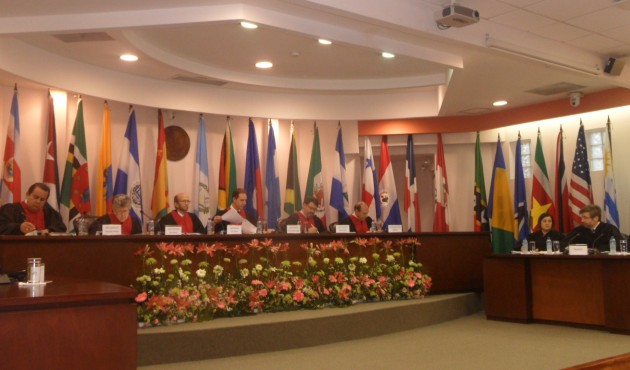On December 15, the Inter-American Court of Human Rights gave its verdict on a landmark case on slavery. The Court found that the Brazilian state violated the right of 85 workers not to be subjected to slavery and trafficking in persons. The workers had been rescued from the Brasil Verde farm in the state of Pará in 2000. This is the first slavery case to be heard and ruled on by the Court, which serves as the judicial body for the Organisation of American States (OAS).
The verdict could open the way for other slavery cases to be brought to the Court if member states do not take sufficient action to prevent slavery and protect its victims. The case had been taken to the Inter-American Commission by Brazil’s Pastoral Land Commission (CPT) and the Center for Justice and International Law (CEJIL).
The Court was clear that the victims had suffered human trafficking and slavery. They had been transported to the farm by bus, train and truck for days, and on arrival their work cards were confiscated by the owners. They worked for over 12 hours a day and slept in sheds with dozens of workers without electricity or beds. Suffering degrading work conditions, with insufficient and poor food, they often became sick and didn’t receive treatment. They worked under threats, with armed guards.
Following the rescue of the victims, none of the legal procedures led to a ruling on responsibility for the crime, nor were the victims compensated, according to the Inter-American Court. It found that the lack of action against the criminals was due to the normalization of the conditions suffered by people from certain backgrounds in Brazil’s poorer states. It also found that the State had violated the right of access to justice of the 85 victims and also 43 other workers who were rescued in 1997 on the same farm and who also did not receive adequate legal protection.
Within its findings the Court urged the state to increase the effectiveness of its public policies and coordination between agencies responsible for the fight against slavery in Brazil, and not to permit any weakening in the important measures in place against slavery.
Br. Xavier Plassat of CPT’s National Campaign against Slave Labour said “It is regrettable to have to reach a condemnatory sentence from the international court in order to ensure that the fight against slave labour is encouraged to continue.”
Reparations required by the Court include that the Brazilian state must: publish the Court’s sentence; restart the legal investigations and prosecution of the case; adopt measures to ensure that the crime of slave labour is not subject to the statute of limitations; and reimburse legal costs and pay compensation to the victims.
The Freedom Fund provided financial support to CEJIL and CPT to help them assist the slavery survivors give testimony to judges during the Court’s recent visit to Brasilia.




